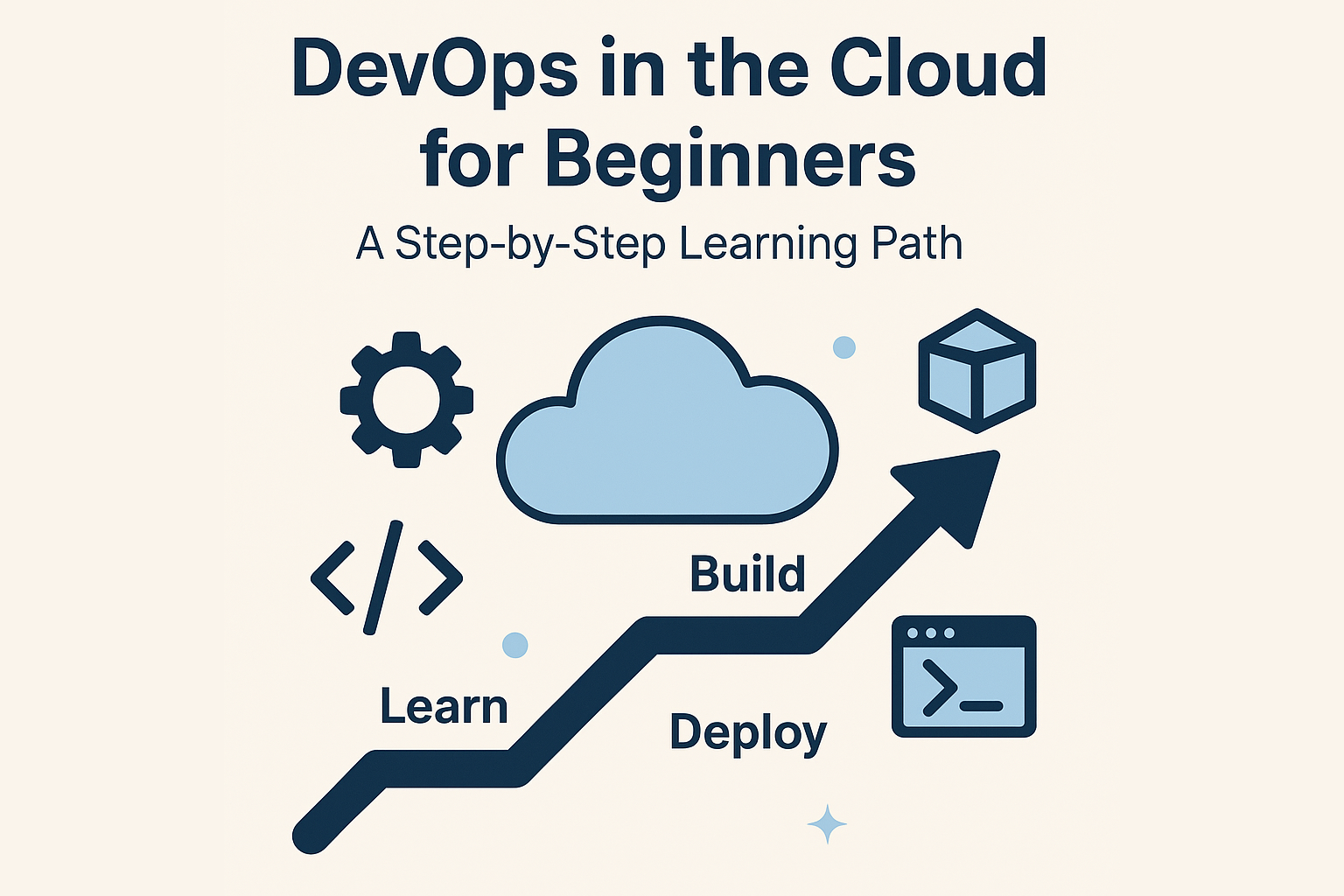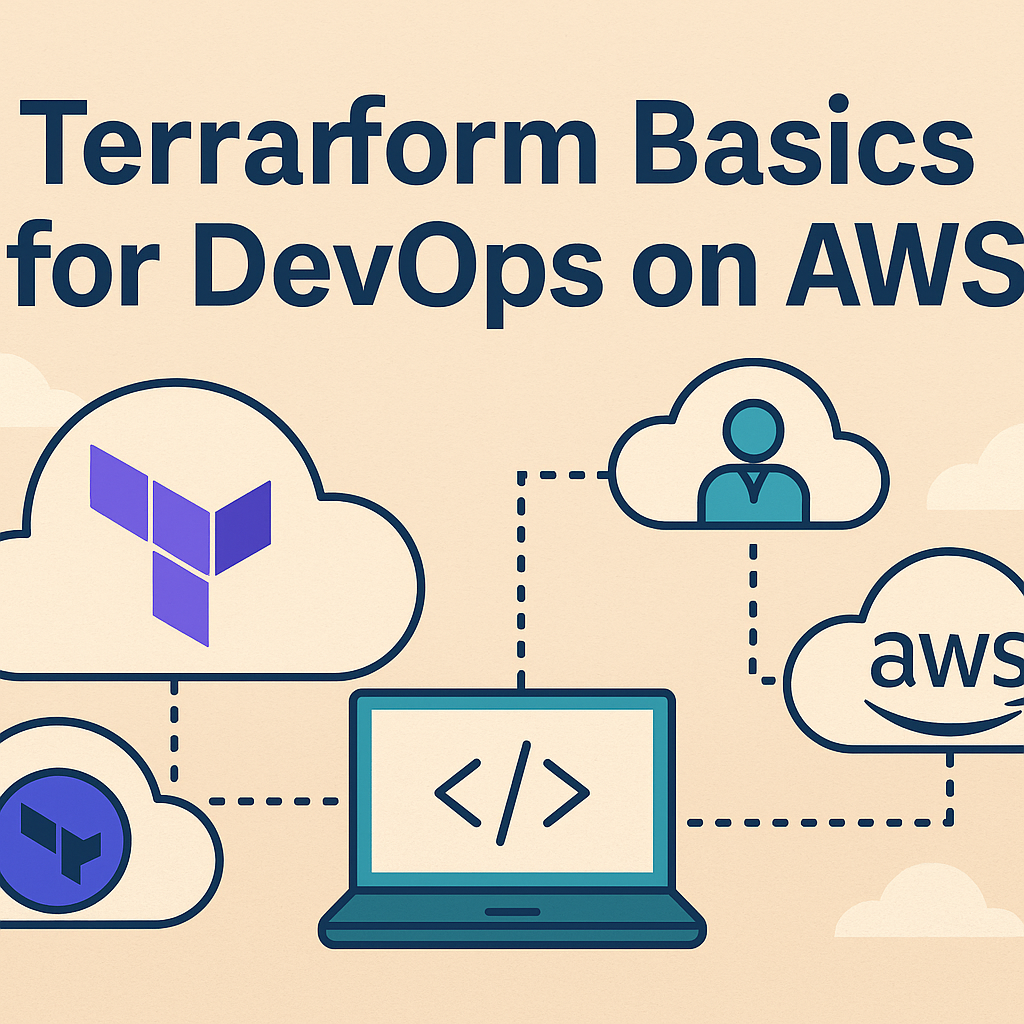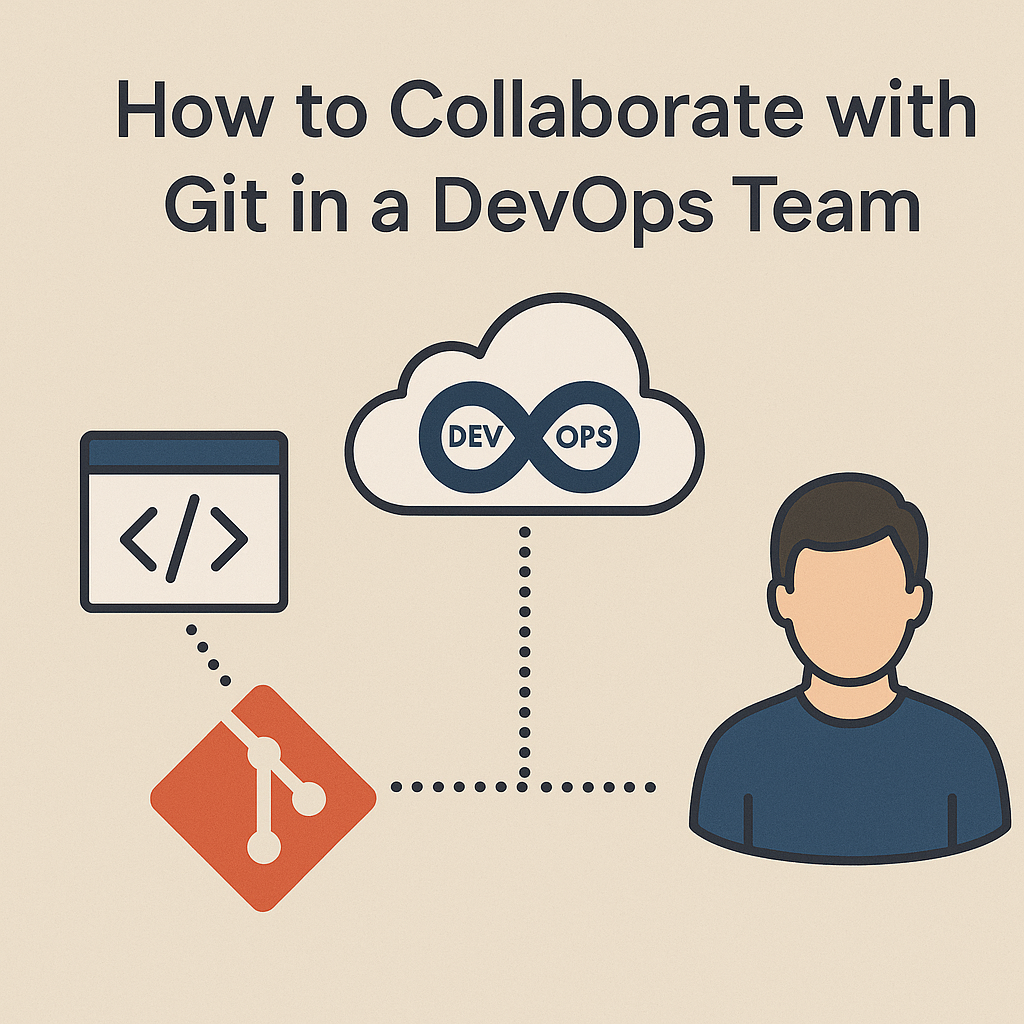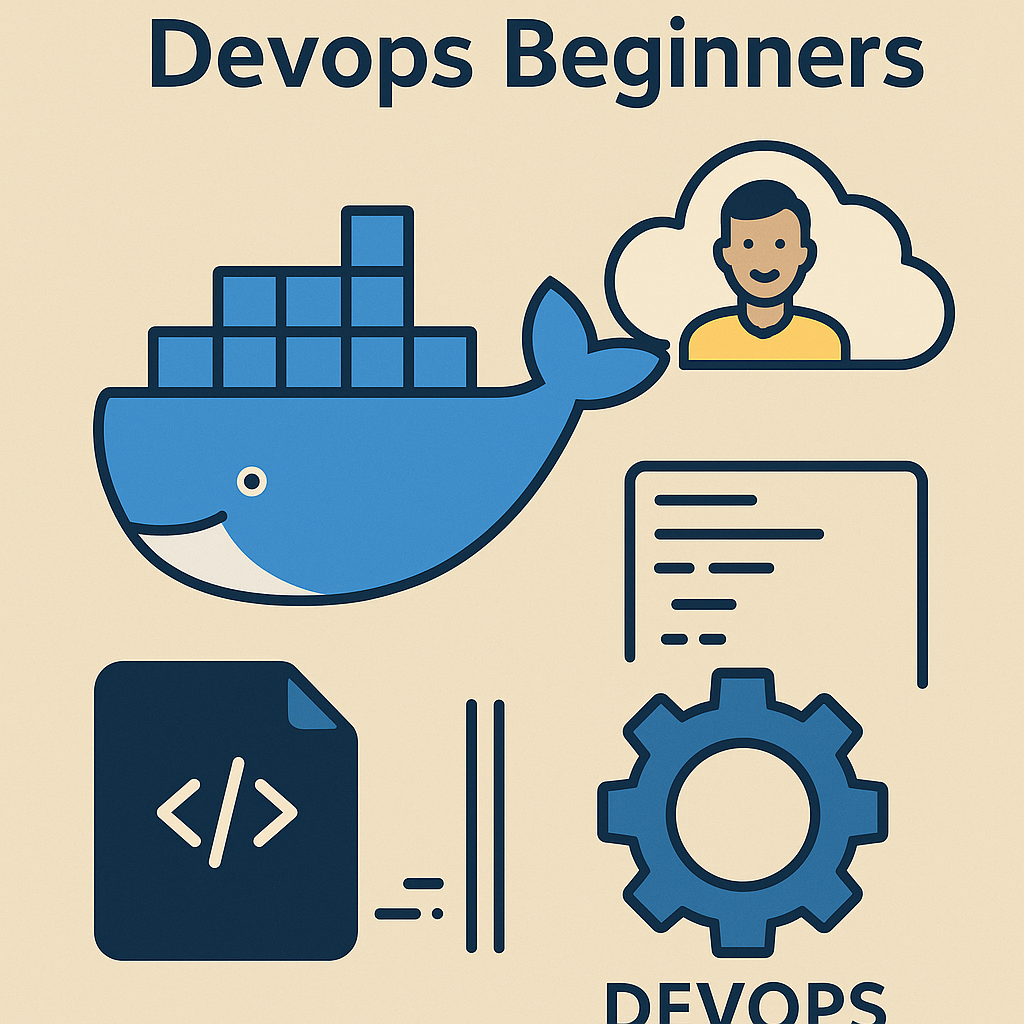AWS vs Azure for DevOps: Which Cloud Platform Should You Choose?
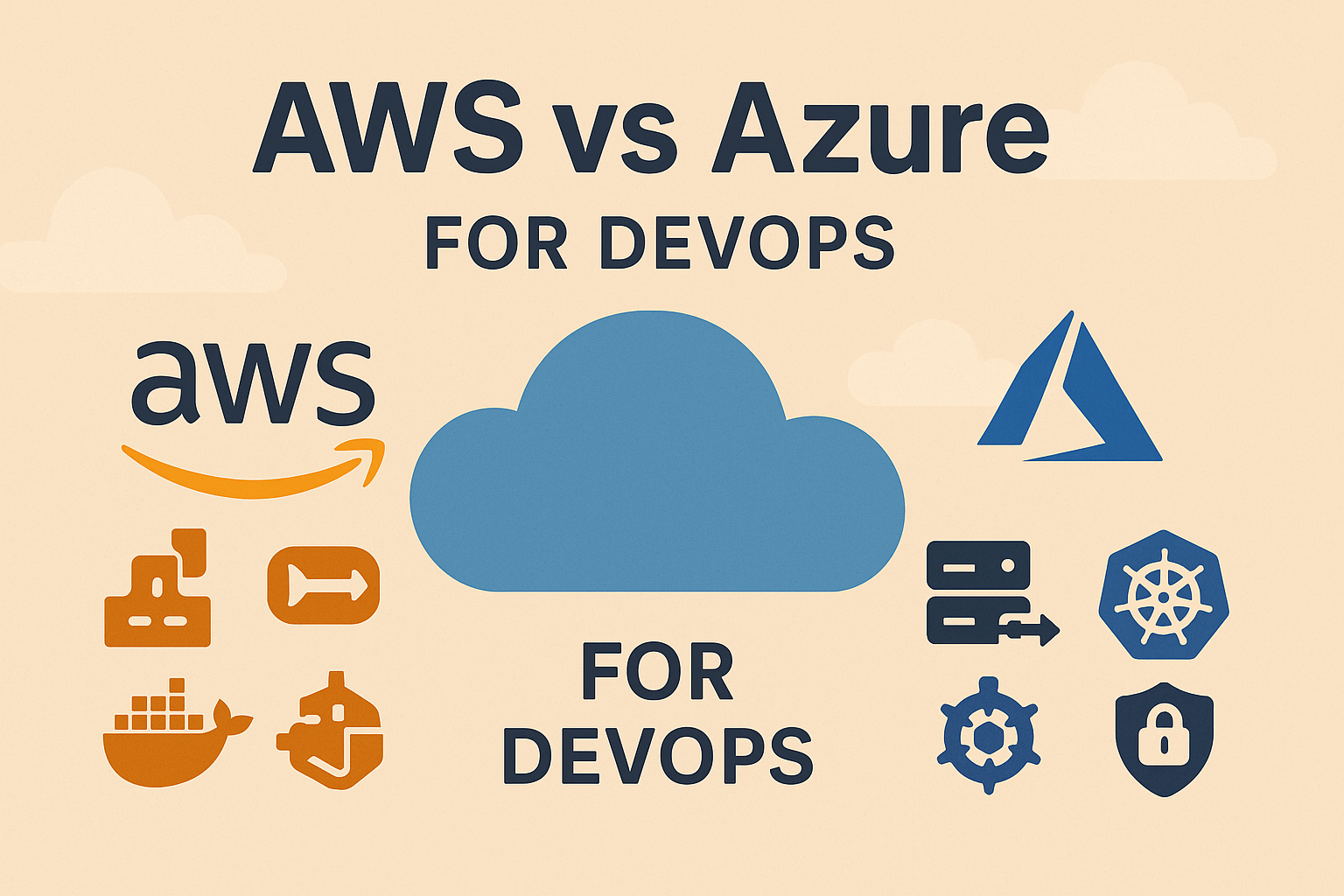
When it comes to choosing a cloud platform for DevOps, two names dominate the conversation: Amazon Web Services (AWS) and Microsoft Azure. If you’re starting your journey in DevOps in the cloud, understanding the strengths of each platform, especially in terms of AWS vs Azure for DevOps, will help you make a confident, informed choice.
Why Your Cloud Platform Matters in DevOps
Your choice of cloud platform affects every stage of the DevOps lifecycle: development, testing, deployment, monitoring, and scaling. Both AWS and Azure offer powerful tools, but the best choice often depends on your team’s background, preferred technologies, and integration needs.
AWS for DevOps
Strengths
- Mature ecosystem: AWS has the largest market share and most mature set of cloud services.
- DevOps tooling: Native tools like CodePipeline, CodeBuild, CodeDeploy, and CodeStar support end-to-end CI/CD workflows. Explore AWS DevOps services
- Integration with third-party tools: Seamlessly connects with GitHub, Jenkins, Terraform, and more.
- Scalability: Exceptional auto-scaling and infrastructure management capabilities.
Common AWS DevOps Services
- EC2: Scalable virtual machines for deploying applications
- ECS / EKS: Managed container services for running Docker and Kubernetes workloads
- Lambda: Serverless compute for event-driven DevOps pipelines
- CloudFormation: Infrastructure as Code (IaC) for provisioning AWS resources
- CloudWatch: Monitoring and alerting service for logs and metrics
- IAM: Identity and Access Management for secure DevOps operations
- Secrets Manager: Secure handling of API keys, tokens, and credentials
Ideal For:
- Teams that prioritize flexibility and customization
- Organizations already using open-source DevOps tools
Azure for DevOps
Strengths
- Azure DevOps Services: A fully integrated suite with Boards, Repos, Pipelines, Test Plans, and Artifacts. Explore Azure DevOps
- Tight Microsoft integration: Seamless support for Windows, .NET, and Visual Studio workflows
- Security & Identity: Deep integration with Azure Active Directory and enterprise-grade governance
Common Azure DevOps Services
- Virtual Machines: Scalable compute resources with preconfigured Windows or Linux images
- Azure Kubernetes Service (AKS): Fully managed Kubernetes for container orchestration. Learn about Kubernetes
- Azure Functions: Serverless compute similar to AWS Lambda
- ARM Templates / Bicep: Infrastructure as Code solutions
- Azure Monitor / Log Analytics: Full observability stack
- Azure Key Vault: Centralized management of secrets and certificates
- Azure DevOps CLI / REST APIs: Automate workflows and integrations
Ideal For:
- Teams in the Microsoft ecosystem
- Enterprises with hybrid cloud or on-prem infrastructure
Key Differences at a Glance
| Feature | AWS | Azure |
|---|---|---|
| CI/CD Tools | CodePipeline, CodeBuild, CodeDeploy | Azure Pipelines, GitHub Actions |
| Container Services | ECS, EKS | AKS |
| Serverless Compute | AWS Lambda | Azure Functions |
| IaC Tools | CloudFormation, Terraform | ARM Templates, Terraform, Bicep |
| Monitoring & Logging | CloudWatch, X-Ray | Azure Monitor, Log Analytics |
| Secrets Management | Secrets Manager | Azure Key Vault |
| Identity & Access Control | IAM | Azure Active Directory |
| OS Preference | Strong Linux/OSS support | Strong Windows/.NET integration |
| Developer Tools | AWS CLI, SDKs, Cloud9 | Azure CLI, Visual Studio, DevOps CLI |
Choosing Between AWS and Azure
If you’re coming from a Microsoft development background (e.g., .NET, C#), Azure may feel like a more natural fit with its native integrations and familiar environment. This strong integration is a key point in the AWS vs Azure for DevOps decision-making process. If you want ultimate flexibility, robust open-source tooling, and expansive service options, AWS might be the better option.
Also consider your team’s existing skill set, preferred OS environment, and compliance requirements. Both platforms offer world-class infrastructure, CI/CD capabilities, monitoring, automation, and scalability — you won’t go wrong with either.
Final Thoughts
Choosing the right platform isn’t about picking a “better” service, it’s about finding what fits best with your DevOps in the Cloud for Beginners journey. Whether you’re deploying Docker containers, managing IaC, or setting up full CI/CD pipelines, both AWS and Azure offer everything you need to succeed in your AWS vs Azure for DevOps journey.
Already learning DevOps? Check out our DevOps in the Cloud for Beginners: A Step-by-Step Learning Path guide for tools, workflows, and a learning roadmap.


